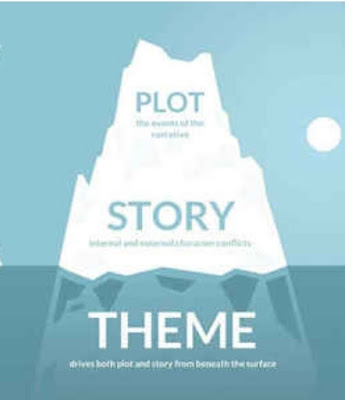What is the Theme of a Story?
As a writer, it’s helpful to stay conscious of your story’s themes to equip yourself with a compass to show you what’s important in your story. This will guide you toward creating moments that engage readers and deepen your story’s significance.
Theme is the “meaning” of a story. The “meaning” of a story shouldn’t be mistaken with topic, however. What the writer makes of the topic constitutes theme.
Some literary critics have claimed that theme is a lost art in contemporary American fiction because we are not likely to ask of a story, “What does it add up to?” We are more likely to make sure the cause-and-effect points are rational and make sense. We appreciate meaningful moments of insight in a story, but sometimes balk at asking big questions. Such questions are considered old-fashioned, and the out-dated qualities of closure and epiphany have diminished the importance of theme.
Yet readers usually search for answers and meaning in literature, and perhaps this is one reason why readers have lost interest in contemporary American short fiction. Unless this quandary is dealt with, classroom prompted stories may fail to be memorable. Theme makes a story memorable. Part of the reason that theme is not discussed very much in writing workshops is that the primary problem with many stories is lack of coherence. For example, it's difficult for the story to succeed if the character or the plot is not credible, so the workshop is devoted to fixing the problem.
While these problems do need to be fixed, fixing the problems doesn’t make for a memorable reading experience. Theme often depends on a vision of life that the writer starts out with before she begins the story. Therefore, theme may be beyond the realm of the creative writing workshop, since workshops are usually centered around beginning or intermediate level poets and writers who have not yet discovered their vision of life.
Still, great fiction depends on theme, and theme is sometimes a lost art. Jerome Stern’s suggestion, in Making Shapely Fiction, is an important reminder to all beginning and intermediate writers: “You can’t avoid meaning even if you want to.”



No comments:
Post a Comment